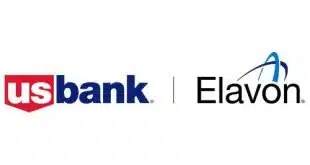Does EMV Make Sense in the United States?
We pose the question above not because we are wondering about the answer, and still less because we doubt the benefits of chip-and-PIN security, but because a recent decision by Visa Inc. leaves us wondering what kind of future the world’s largest payments network sees for chip card transactions—known as EMV payments—in America.
Last month, Visa said that starting March 31 it would remove the requirement for merchants to prove compliance with the Payment Card Industry data-security standard (PCI) if they process at least three-quarters of their Visa transactions from chip-enabled terminals. Given the time and money merchants spend on burdensome compliance audits, that’s a nice incentive. Only one problem: it applies only to foreign markets. For now, at least, it’s not good in the United States.
Visa says it excluded the U.S. because, with rules pending from the Federal Reserve to implement the Durbin Amendment, it doesn’t want to create an incentive for what could turn out to be an expensive undertaking for issuers. Chip cards are more costly than mag-stripe plastic. Meanwhile, Durbin cuts issuers’ debit card interchange income drastically. While the law makes an allowance for issuers’ fraud-fighting costs, it’s unclear how technologies like EMV will fit into that allowance.
Yet EMV, combined with dynamic data authentication, clearly has a powerful potential to reduce fraud losses. Otherwise, Visa would not have offered to lift the burden of proving PCI compliance off the shoulders of merchants that process most of their transactions from chip-reading terminals. So it’s regrettable that the network has chosen to tie the U.S. availability of this incentive to Durbin. Either EMV makes sense in this country, as we think it manifestly does, or it doesn’t.
With virtually no terminals or cards in this market, EMV could use a leg up, just as technologies like 3-D Secure online authentication (think Verified by Visa) and even electronic draft capture were in their time promoted by the networks with incentives for deployment. Indeed, the U.S. remains bereft of chip-and-PIN just as the rest of the developed world is tooling up for it, providing a neat channel for easy-picking fraud to come here.
If issuers are going to earn less interchange on debit card transactions, then the case for fraud reduction, it seems, becomes even more salient. And issuers can make a more than reasonable case for EMV costs to be considered by the Fed under its Durbin rules.
We are not fans of Durbin because we are not fans of government price controls—for merchants or banks. Visa now has an opportunity to make lemonade out of this legal lemon, if it will reconsider.





